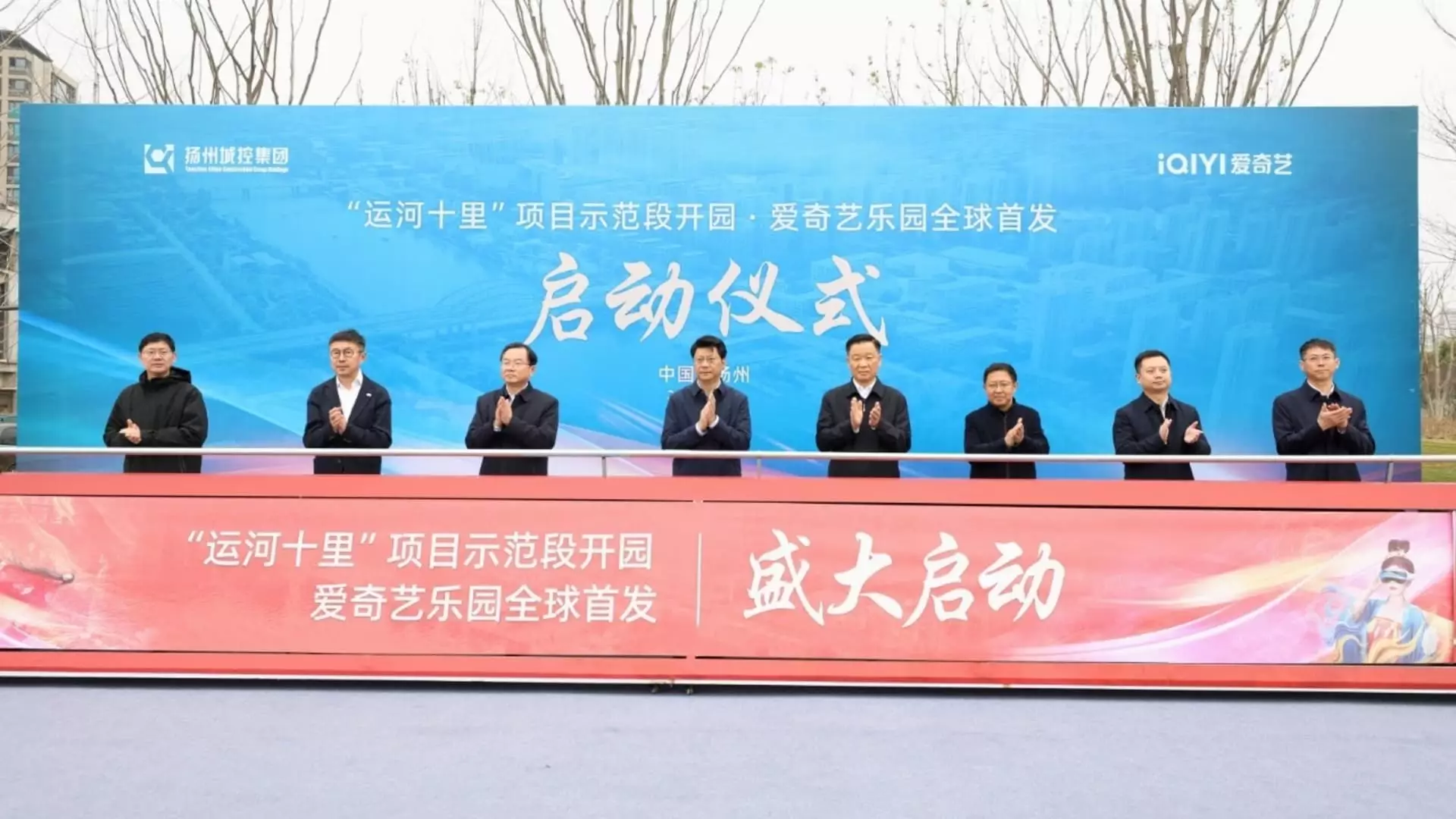In an increasingly saturated entertainment market, iQiyi’s announcement of its upcoming theme park, iQiyi Land, signals an ambitious move that raises eyebrows. While the allure of creating immersive experiences based on beloved characters from its film and television offerings might be enticing, one cannot overlook the potential pitfalls of this venture. The theme park industry is as competitive as it is unpredictable, and iQiyi’s foray into this arena could either revolutionize the experience economy or flounder in a sea of mediocrity. It seems the company is trying to ride the wave of consumer enthusiasm for interactive entertainment, yet the question remains: Is this leap of faith justifiable in today’s post-pandemic context?
Shifting Consumer Preferences and Economic Hesitance
Despite the growing chorus around the experience economy, marked by rising ticket sales at international hotspots like Disney, one cannot ignore the sobering statistics from China’s retail sector. With consumer sentiment remaining lukewarm—evidenced by a modest Consumer Price Index increase of only 0.2% last year—people are hesitating to spend on non-essentials. iQiyi must rely heavily on the belief that their audience will spend significant amounts for a day of amusement, especially when discretionary spending tends to dwindle in uncertain economic climates.
While they track promising forecasts estimating theme park revenue in China will surpass 480 billion yuan, skeptics highlight that optimism does not necessarily equate to actual patron engagement. Beyond economic forecasts, the essence of why people choose to visit theme parks has fundamentally transformed, especially in the wake of the pandemic. Potential visitors are now carrying an emotional burden—not only seeking entertainment, but also prioritizing safety, authenticity, and value.
Profitability vs. Sustainability: A Risky Balancing Act
Adding to the complexity is the financial burden of developing a massive entertainment space like iQiyi Land. With initial investments needed in construction, technology, and ongoing operational costs, the potential for profitability becomes a concern. While the company reports a promising 14% increase in share value this year, the reality is that iQiyi is swimming against a current of intense competition with established giants like Disney and Universal Studios. Furthermore, with iQiyi’s recent revenue decline of 8% amid an increasing demand for content, investing heavily in a physical location feels perilous.
The success of a theme park often hinges on its ability to innovate continuously. If iQiyi’s attractions become stale or repetitive, the risk of declining patronage looms. Visitors are intricately linked to word-of-mouth referrals and social media exposure; failure to captivate them could send prospective guests flocking to more adventurous alternatives.
The Virtual Reality Dilemma
Although iQiyi is keenly leveraging virtual reality (VR) technology to enhance the visitor experience—using platforms that mimic movement in limited spaces—adopting such technology comes with its hurdles. For one, the execution of VR in high-footfall locations presents a significant technical challenge. Expectedly, the thrill of hopping on a virtual platform might not achieve lasting appeal amidst pervasive advances in interactive gaming. The novelty of VR experiences may wear thin, leading to visitor fatigue.
Moreover, in a market that thrives on high-octane engagement, iQiyi’s VR offerings may not serve as a sufficient draw. Visitors are not merely looking for cutting-edge technology; they seek nostalgia, emotional resonance, and substantial content to justify their entry fees—factors that could evade a VR-first approach.
Intellectual Property Clash: Domestic vs. Global
The upcoming wave of theme parks, including those from global franchises, indicates a landscape fraught with competition for intellectual property. iQiyi appears to be toeing a fine line between harnessing popular domestic narratives and catering to global franchises. While collaboration with local tourism boards has proven fruitful in boosting footfall for television dramas, the challenge remains: Will localized offerings be compelling enough to attract visitors away from the bright lights of universes created by brands like Disney?
Theme parks thrive on big ideas combined with the thrill of familiar characters, an equation that becomes more challenging when competing with international brands. For iQiyi, relying solely on its characters could risk alienating potential visitors who might gravitate more towards established franchises. As the company moves forward, it needs to ensure its creative investments yield an emotional connection with its audience; otherwise, they run the risk of becoming just another footnote in the chronicle of failed experiences.
Final Thoughts: A Venture on the Brink of Disaster or Triumph?
In sum, iQiyi’s ambitious project encompasses multiple layers of opportunity and risk that reflect broader dynamics in the entertainment landscape. The success of iQiyi Land could either set a revolutionary precedent in the Chinese entertainment sector or spiral into another tale of corporate miscalculation. As consumer expectations evolve, the real challenge for iQiyi won’t just hinge on its ability to execute its vision, but on its capacity to resonate profoundly with the psyche of a discerning audience that increasingly prioritizes not just experience, but depth and authenticity in entertainment.

